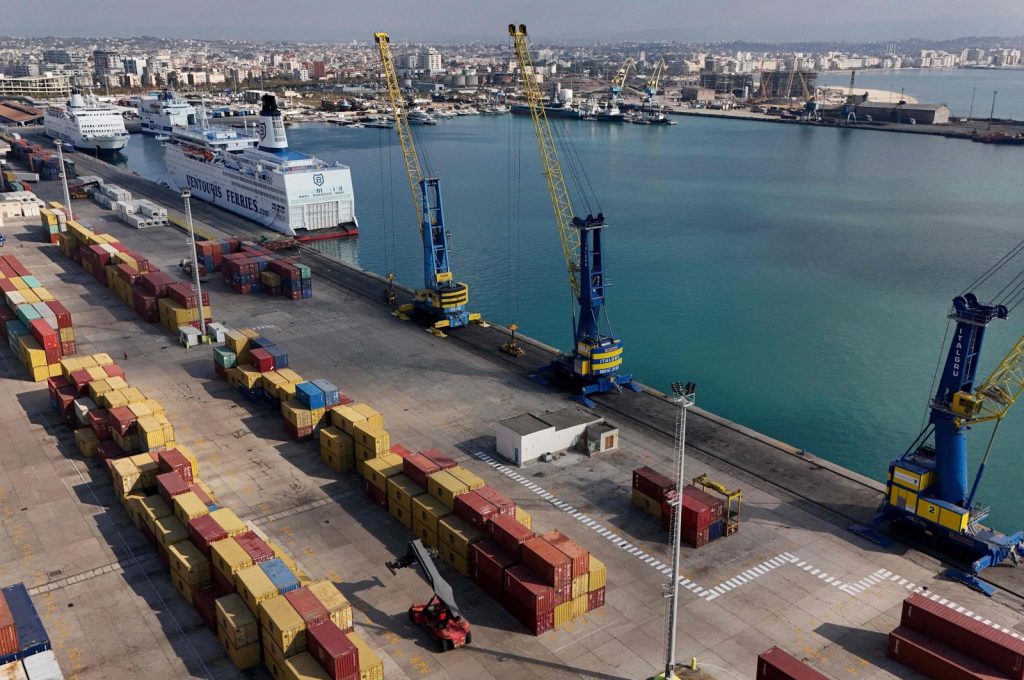Corridor VIII is one of the Pan-European corridors established during the Pan-European Transportation Conferences, held in Prague (1991), Crete (1994) and Helsinki (1997). Originally envisioned as a comprehensive multi-modal transport system, Corridor VIII aims to link the southern Adriatic Sea to the Black Sea. This corridor incorporates an extensive infrastructure network, including seaports, river ports, airports, multi-modal transport hubs, roads and railways, encompassing 1,270 kilometers (789 miles) of rail and 960 kilometers of roads. The route begins at the southern Italian ports of Bari and Brindisi. It extends to the Albanian ports of Durrës and Vlora via the capitals of Tirana, Skopje and Sofia, eventually reaching Plovdiv and the Bulgarian ports of Burgas and Varna on the Black Sea coast.
Corridor VIII is a crucial infrastructure project linking the Adriatic and Black Seas, vital for NATO and EU mobility and economic growth in the Balkans. Despite the significant support it achieves from NATO, the EU, the U.S. and regional countries, it faces challenges from political obstacles and infrastructure issues that threaten its progress.
Corridor VIII is strategically important to NATO, providing an essential transport route that enhances military mobility across Southeast Europe. It serves as a logistical backbone, connecting the Adriatic coast in Albania to the Black Sea in Bulgaria, thus enabling the rapid deployment of forces and resources from west to east, if necessary. As Lord Stuart Peach emphasized, this connection is pivotal for ensuring NATO’s operational readiness and responsiveness in the region, particularly amid rising tensions at Europe’s eastern flank. Efficiently moving military assets between coasts enhances NATO’s collective defense strategy, which is especially important given the growing security concerns from Russia’s actions in Ukraine and the broader Black Sea region.
Corridor VIII integrates with trans-European networks like the Middle Corridor, enhancing connectivity between Europe and Central Asia. By aligning with projects such as the Trans-European Transport Network – TEN-T, it boosts NATO’s logistical capacity, strengthens military logistics and supply chain resilience, and supports Southeast Europe’s economic integration and strategic autonomy.
Blockade and vulnerabilities
The contentious relationship between North Macedonia and Bulgaria complicates the geopolitical dimension of Corridor VIII. Bulgaria has effectively blocked North Macedonia’s progress in EU accession negotiations, demanding constitutional recognition of a small number of Bulgarian citizens within North Macedonia. This insistence is largely perceived as political leverage to assert influence over Skopje’s identity politics. Bulgaria inadvertently undermines the cohesion of regional connectivity projects vital for economic prosperity and regional stability by stalling critical EU corridors.
The EU’s failure to address Bulgaria’s obstructive identity politics highlights its weakened leadership in Southeast Europe, exacerbated by internal challenges that hinder decisive action. Balancing member states’ interests while favoring diplomatic consensus over coercion further complicates its ability to assert influence in the region.
Economically, Corridor VIII holds substantial promise as a regional growth catalyst connecting Albania, North Macedonia and Bulgaria through a multi-modal transport network that includes road, rail, ports and telecommunications. This corridor is expected to bridge economic disparities, fostering better connectivity between these nations and facilitating trade flows with Italy, Romania, and Türkiye.
The economic exchange among Albania, North Macedonia and Bulgaria remains modest, partly due to infrastructural challenges and limited integration of transport services. According to the Cooperation and Development Institute, the current state of road and rail infrastructure between Sofia and Skopje remains among the few European capitals without a direct railway connection. However, political instability and a lack of sustained funding often derail investments in transport infrastructure.
The countries’ consistent political instability is a major vulnerability that poses significant risks to Corridor VIII’s success. Albania, for example, still needs more infrastructure along its Adriatic coastline that could effectively link to North Macedonia and Bulgaria. North Macedonia faces the dual challenge of overcoming political roadblocks set by Bulgaria while modernizing its transport infrastructure. It seems that the European Bank for Research and Development (EBRD), as the main investor in infrastructure projects in the region, is left unused to its capacity.
Broader regional impact
Corridor VIII is a regional infrastructure project symbolizing the broader European ambition for connectivity and integration. It complements the EU’s Trans-European Transport Network (TEN-T) as a significant axis for economic integration and geopolitical stability in the Balkans. The corridor is a clear manifestation of NATO’s southern flank strategy, aimed at fostering resilience among allied countries by enhancing economic ties and improving logistical support for defense operations.
Moreover, the corridor’s completion is likely to amplify the roles of Albania, North Macedonia and Bulgaria in the broader European security architecture, especially as these nations are also NATO members. The participation of EU funds and Western financial institutions, such as the Western Balkans Investment Framework (WBIF), is vital for advancing project maturity and ensuring the comprehensive development of infrastructure. However, securing sustainable and inclusive investment from international donors remains an uphill battle, often contingent upon political stability and regional cooperation, sometimes lacking in the Western Balkans.
The success of Corridor VIII hinges on overcoming both political and infrastructural obstacles. From a security perspective, its importance for NATO’s logistical capacity in the region underlines the urgency of completing this corridor. Economically, it promises enhanced regional connectivity and opportunities for growth. The geopolitical dimension, particularly Bulgaria’s veto on North Macedonia’s EU integration, is an upsetting reminder of how deeply politics can impact infrastructure projects crucial for broader regional development.


